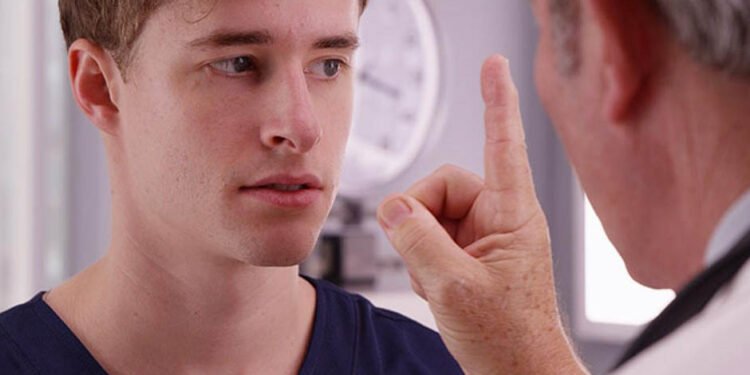Key Takeaways:
- Concussions can have long-lasting effects on an individual’s health, including increasing the risk of developing neurodegenerative diseases and mental health disorders.
- The potential long-term effects of concussions are often underestimated, leading to delayed diagnosis and inadequate treatment.
- Raising awareness of concussion-related health concerns is crucial in breaking down the stigma and encouraging individuals to seek appropriate help and treatment.
- Recovering from a concussion involves both physical and cognitive rehabilitation.
- Rest is crucial in the early stages of concussion recovery, but prolonged rest can hinder recovery.
- Advancements in technology, such as virtual reality therapy and transcranial magnetic stimulation, hold promise for post-concussion recovery.
- Concussions and strokes can compound each other’s effects, requiring specialized rehabilitation strategies.
- Support systems play a vital role in the recovery process for individuals with concussions and strokes.
- A comprehensive approach to recovery includes addressing mental health, nutrition, exercise, and self-advocacy.
The Hidden Dangers of Concussions: Unveiling their Impact on Long-Term Health
Concussions are a type of traumatic brain injury that can have long-lasting effects on an individual’s health. While most people associate concussions with immediate symptoms such as headaches and dizziness, the true dangers lie in the potential long-term consequences. Research has shown that concussions can increase the risk of developing various health conditions, including neurodegenerative diseases and mental health disorders.
1. Unraveling the Complexities of Concussions
Concussions occur when the brain is subjected to a sudden impact or violent shaking, causing it to bounce or twist within the skull. This movement can disrupt the normal functioning of the brain, leading to a wide range of symptoms. These symptoms can vary widely depending on the severity of the concussion, but common signs include headaches, dizziness, confusion, memory problems, and sensitivity to light and noise.
Understanding the complexities of concussion effects is crucial in recognizing the potential long-term effects. While some individuals may recover fully within a few weeks or months, others may experience persistent symptoms for years. This variation in recovery highlights the need for further research into the underlying mechanisms of concussions and their impact on long-term health.
2. The Silent Burden: Underestimating the Long-Term Effects
One of the biggest challenges in addressing the long-term effects of concussions is the underestimation of their impact. Many individuals, including healthcare professionals, often overlook or downplay the significance of concussions, especially when there are no visible signs of injury. This lack of awareness can prevent individuals from seeking appropriate medical attention and support, leading to delayed diagnosis and inadequate treatment.
Recent studies have shed light on the hidden dangers of concussions, revealing their potential links to neurodegenerative diseases such as Alzheimer’s and Parkinson’s. Researchers have found that individuals with a history of concussions may have a higher risk of developing these conditions later in life. Furthermore, concussions have also been associated with an increased likelihood of developing mental health disorders, including depression, anxiety, and post-traumatic stress disorder.
By underestimating the long-term effects of concussions, we put individuals at risk of experiencing ongoing health problems and hinder their potential for a full recovery. It is essential to recognize the importance of proactive management and monitoring of concussions to minimize the likelihood of long-term complications.
3. Breaking the Stigma: Raising Awareness of Concussion-Related Health Concerns
One of the biggest challenges in addressing the long-term effects of concussions is the stigma associated with brain injuries. Many individuals feel embarrassed or ashamed to admit that they have suffered a concussion, fearing judgment or disbelief from others. This stigma can prevent individuals from seeking the necessary medical care and support, further exacerbating the potential long-term consequences.
Raising awareness of concussion-related health concerns is crucial in breaking down these barriers and reducing the stigma. By educating the public about the potential long-term effects of concussions and promoting a supportive and understanding environment, we can encourage individuals to seek the appropriate help and treatment they need.
Additionally, healthcare professionals play a vital role in raising awareness and providing evidence-based information about concussions. They can contribute to changing the narrative surrounding concussions by advocating for proper diagnosis, treatment, and ongoing management. Through education and collaboration, we can work towards a society that acknowledges and addresses the hidden dangers of concussions.
Navigating the Road to Recovery: Understanding the Post-Concussion Journey
Recovering from a concussion is a multifaceted process that involves both physical and cognitive rehabilitation. Each individual’s journey is unique, and the recovery timeline can vary significantly depending on various factors, such as the severity of the concussion, age, overall health, and access to appropriate healthcare resources.
1. A Multifaceted Recovery Process: From Physical to Cognitive Rehabilitation
Physical and cognitive rest is crucial in the early stages of concussion recovery. Giving the brain time to heal and reducing cognitive demands allows for optimal recovery. However, it is important to strike a balance between rest and gradual reintegration of activities. Too much inactivity can lead to deconditioning and prolonged recovery. As symptoms improve, gradually introducing physical activities, under the guidance of a healthcare professional, can help rebuild strength and improve overall well-being.
Cognitive rehabilitation is another essential component of the recovery process. This may involve working with a healthcare professional specialized in concussion management to address cognitive impairments such as memory problems, attention difficulties, and executive dysfunction. Strategies may include cognitive exercises, therapy, and lifestyle modifications to improve cognitive functioning and promote recovery.
2. The Role of Rest and Activity in Promoting Healing
Rest is a crucial component of concussion recovery, especially in the early stages of healing. It allows the brain to regain its energy and repair any damage caused by the concussion. However, prolonged rest beyond the acute phase can hinder recovery and lead to deconditioning. Gradually reintroducing activities, both physical and cognitive, under the guidance of a healthcare professional, can promote healing and prevent secondary complications associated with prolonged inactivity.
Structured rehabilitation programs that target specific symptoms and address individual needs can provide a comprehensive approach to recovery. These programs may include a combination of physical therapy, occupational therapy, speech-language therapy, and psychological support to address the multidimensional effects of concussions.
3. Harnessing Technology: Innovative Treatments for Post-Concussion Recovery
Advancements in technology have opened up new possibilities for treating and managing the long-term effects of concussions. Innovative treatments such as virtual reality therapy, neurofeedback, and transcranial magnetic stimulation have shown promise in enhancing recovery and improving quality of life for individuals with post-concussion symptoms.
Virtual reality therapy, for example, allows individuals to engage in simulated environments that challenge their cognitive and physical abilities in a controlled and safe manner. This type of therapy can help improve balance, coordination, and cognitive function. Neurofeedback involves training individuals to self-regulate their brain activity, helping them regain control over their physiological responses and potentially reducing persistent symptoms. Transcranial magnetic stimulation uses magnetic fields to stimulate specific areas of the brain, promoting neuroplasticity and facilitating recovery.
While these innovative treatments are still being researched and refined, they hold great promise for the future of post-concussion recovery. By continuing to explore and invest in these technologies, we can potentially enhance long-term outcomes for individuals affected by concussions.
Post-Stroke Rehabilitation: Unveiling the Overlapping Challenges of Concussions and Stroke
When an individual experiences both a concussion and a stroke, the challenges in recovery become even more complex. The overlapping effects of these two neurological conditions can significantly impact an individual’s physical and cognitive abilities, requiring specialized rehabilitation strategies.
1. Double Impact: The Compounding Effects of Concussions on Stroke Recovery
Concussions and strokes both involve brain injuries, albeit from different causes. When an individual suffers both a concussion and a stroke, their effects can interact and amplify each other, leading to more severe symptoms and prolonged recovery times. Concussions can disrupt the brain’s healing processes following a stroke and contribute to additional cognitive and physical impairments.
The compounding effects of these two conditions necessitate a comprehensive approach to rehabilitation that addresses both the stroke-related deficits and the residual effects of the concussion. This may involve coordination between a multidisciplinary team of healthcare professionals, including neurologists, physiotherapists, occupational therapists, and speech-language pathologists.
2. Rehabilitation Techniques: Adapting Strategies for Dual Neurological Conditions
Rehabilitation techniques for individuals with both concussions and strokes need to be tailored to address the unique challenges presented by these dual neurological conditions. Physical therapy can focus on improving motor function and coordination while also addressing any balance or gait issues resulting from the concussion and stroke combination.
Cognitive rehabilitation may involve specialized interventions to address the cognitive impairments caused by both the concussion and stroke. This may include memory exercises, attention training, and strategies to overcome executive dysfunction. Speech-language therapy can help individuals regain language skills, improve swallowing abilities, and address any communication difficulties resulting from the combined effects of the concussion and stroke.
By adapting rehabilitation strategies to account for the overlapping challenges of concussions and strokes, healthcare professionals can optimize recovery outcomes and improve overall quality of life for individuals with these dual neurological conditions.
3. The Role of Support Systems in Enhancing Post-Stroke and Post-Concussion Recovery
In addition to specialized rehabilitation techniques, support systems play a vital role in the recovery process for individuals with both concussions and strokes. The journey to recovery can be physically and emotionally challenging, and having a strong support network can make a significant difference.
Family, friends, and healthcare professionals can provide encouragement, assistance, and understanding throughout the recovery process. Support groups, both in-person and online, can also be invaluable resources for individuals and their loved ones to connect with others who have experienced similar challenges and share coping strategies.
Furthermore, healthcare professionals can help individuals and their support systems navigate the complexities of recovery, providing education and guidance on managing symptoms, adjusting to lifestyle changes, and accessing appropriate resources.
Beyond the Diagnosis: Holistic Approaches to Concussion and Stroke Recovery
A comprehensive approach to concussion and stroke recovery goes beyond traditional medical interventions and includes addressing various aspects of an individual’s well-being, including mental health, nutrition, exercise, and self-advocacy.
1. Mind and Body: The Importance of Mental Health in the Healing Process
Mental health plays a crucial role in the recovery process for individuals affected by concussions and strokes. Coping with the physical and cognitive challenges can take a toll on mental well-being, leading to increased stress, anxiety, and depression.
It is essential to prioritize mental health by seeking appropriate support and engaging in strategies to promote emotional well-being. This may include therapy, counseling, mindfulness practices, and stress management techniques. By addressing mental health needs, individuals can better navigate the ups and downs of the recovery journey and improve overall outcomes.
2. Nutrition and Exercise: Fueling Recovery and Supporting Brain Health
Diet and exercise are vital components in promoting recovery and supporting brain health. Nutrient-dense foods, such as fruits, vegetables, whole grains, and lean proteins, can provide the necessary building blocks for brain repair and optimal functioning.
Regular exercise, under the guidance of a healthcare professional, can improve blood flow to the brain, promote neuroplasticity, and enhance overall well-being. Engaging in activities such as walking, swimming, yoga, and strength training can have a positive impact on both physical and cognitive recovery.
3. Empowering Patients: Self-Advocacy and Taking Charge of Recovery Journey
Empowering patients to become active participants in their recovery journey is a central component of comprehensive concussion and stroke management. Self-advocacy involves learning about one’s condition, understanding treatment options, and actively communicating with healthcare professionals to ensure the best possible care.
Individuals can educate themselves about their conditions, ask questions, and express their needs and concerns. By taking an active role in their recovery, individuals can make informed decisions and actively contribute to their healing process.
By adopting a holistic approach to concussion and stroke recovery, individuals can optimize their chances of long-term recovery and enhance their overall well-being.












